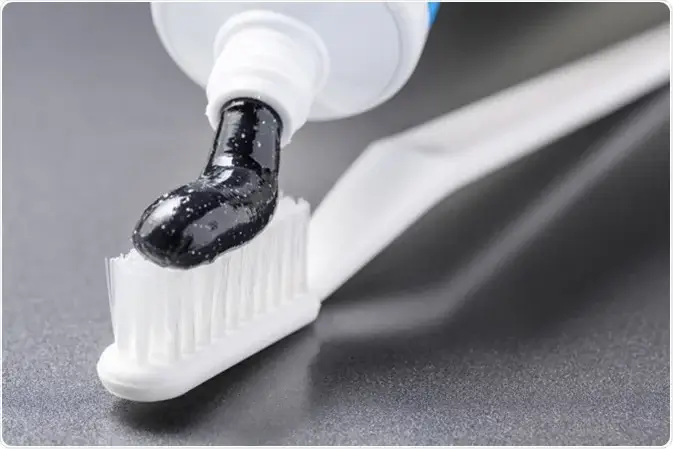The Truth About Charcoal Toothpaste: Does It Work?
Charcoal toothpaste has gained immense popularity in recent years, with many claiming it offers superior whitening and detoxifying benefits compared to traditional toothpaste. But does charcoal toothpaste really work, or is it just another marketing trend? In this article, we will explore the effectiveness, benefits, and potential risks of using charcoal toothpaste to help you decide if it is right for your oral health routine discover more.

What is Charcoal Toothpaste?
Charcoal toothpaste is made with activated charcoal, a fine black powder derived from natural sources like coconut shells, peat, and wood. Activated charcoal is processed to become highly porous, giving it absorbent properties that are said to help remove stains and toxins from teeth. This ingredient has been used for centuries in medicine for its ability to absorb toxins, and now it has found its way into oral care products.
How Does Charcoal Toothpaste Work?
The primary claim behind charcoal toothpaste is that its adsorptive properties help lift stains from the enamel, leading to whiter teeth. Here’s how it supposedly works:
Binding to Stains: Charcoal binds to surface stains from coffee, tea, wine, and tobacco, helping to remove discoloration.
Absorbing Toxins and Bacteria: Some claim that charcoal removes toxins and bacteria from the mouth, improving oral hygiene.
Polishing Effect: The gritty texture of charcoal provides a mild abrasive effect that may help scrub away plaque and stains.
pH Balance Benefits: Some proponents argue that charcoal can help balance the pH levels in the mouth, reducing acidity and preventing cavities.
The Benefits of Charcoal Toothpaste
1. Surface Stain Removal
Charcoal toothpaste can help remove extrinsic stains (surface stains) caused by food and drinks, potentially making teeth appear whiter. Unlike chemical-based whitening products, charcoal provides a more natural way to lift stains without bleaching agents.
2. Natural Ingredient
Many charcoal toothpastes are free from artificial additives, synthetic dyes, and fluoride, appealing to those looking for a more natural oral care option. Some brands even include additional organic ingredients such as coconut oil and baking soda to enhance their formula.
3. Freshens Breath
Charcoal may help absorb odor-causing compounds, leading to fresher breath. Its ability to neutralize bad breath bacteria makes it a popular choice for those who struggle with persistent halitosis.
4. Detoxifying Properties (Debatable)
Some proponents claim that charcoal toothpaste has detoxifying effects, helping to remove toxins from the mouth. However, dental professionals argue that this claim lacks sufficient scientific evidence, as the mouth does not accumulate toxins in the same way the digestive system does.
The Risks and Drawbacks of Charcoal Toothpaste
1. Abrasiveness Can Damage Enamel
Charcoal is highly abrasive, and frequent use may wear down tooth enamel, leading to increased sensitivity and a higher risk of cavities. Enamel does not regenerate, so once it is worn away, the teeth become more vulnerable to decay and discoloration.
2. Lack of Fluoride
Many charcoal toothpastes do not contain fluoride, which is essential for preventing tooth decay and strengthening enamel. Fluoride helps remineralize weakened enamel, making it crucial for maintaining long-term oral health.
3. Potential for Staining
Ironically, charcoal particles can settle into cracks and crevices in the teeth, leading to long-term discoloration rather than whitening. If not rinsed thoroughly, the fine black powder can also stain dental restorations, such as crowns and veneers.
4. Unproven Detoxifying Claims
There is little scientific evidence to support claims that charcoal detoxifies the mouth or removes toxins better than regular toothpaste. The human body, particularly the liver and kidneys, already has natural detoxification processes that do not require external assistance.
5. Can Interfere with Dental Treatments
Charcoal toothpaste may not be suitable for people with dental work, such as braces, fillings, or implants. Its abrasiveness can wear down materials used in dental restorations, reducing their longevity and effectiveness.
Is Charcoal Toothpaste Safe?
The American Dental Association (ADA) has not approved charcoal toothpaste as a recommended oral care product due to its potential risks. While occasional use may not cause harm, long-term use could damage enamel and negatively impact oral health. If you choose to use charcoal toothpaste, it is advisable to do so sparingly and under the guidance of a dentist.
Alternatives to Charcoal Toothpaste
If you are looking for a safe and effective whitening option, consider the following alternatives:
Fluoride Toothpaste with Whitening Agents: Contains mild abrasives and bleaching agents like hydrogen peroxide for effective whitening.
Professional Teeth Whitening Treatments: Performed by a dentist for safe and long-lasting results.
Baking Soda Toothpaste: A gentler alternative that helps remove surface stains without damaging enamel.
Oil Pulling with Coconut Oil: A natural method that some claim helps reduce bacteria and improve oral hygiene.
Hydrogen Peroxide Rinses: Used in diluted form, hydrogen peroxide can brighten teeth over time with minimal risks.
What Do Dentists Say About it?
Most dentists remain skeptical about the long-term benefits of charcoal toothpaste. Here’s what experts recommend:
Use with Caution: If you decide to use charcoal toothpaste, limit its application to once or twice a week to prevent enamel wear.
Follow Up with Fluoride Toothpaste: To protect enamel, use fluoride toothpaste in your daily routine.
Monitor Sensitivity: If you experience increased tooth sensitivity, stop using charcoal toothpaste immediately.
Consult Your Dentist: Before trying charcoal toothpaste, discuss its risks and benefits with your dental professional.
Conclusion: Should You Use it?
Charcoal toothpaste may provide temporary stain removal, but its risks often outweigh the benefits. While it may help with surface stains, it does not offer significant long-term whitening effects, and its abrasiveness may lead to enamel erosion and tooth sensitivity. If you choose to use it, limit its use to once or twice a week and follow up with a fluoride toothpaste to maintain enamel strength.
For safe and effective whitening, consult your dentist about professional options that offer long-term results without compromising your dental health. When in doubt, stick to dentist-recommended whitening treatments that are backed by scientific research and designed for optimal oral care.
